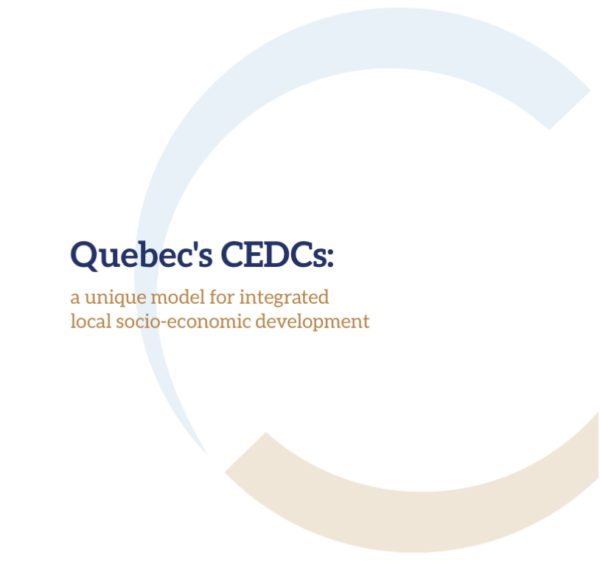The concept of “Community Economic Development Corporation” (CDEC) emerged in the ’80s in Quebec and initially focused on improving local living conditions to promote inclusive economic growth. These organizations, created by collaborations between unions, community stakeholders, and the business community, position themselves as economic and social development catalysts in the communities where they operate.
For decades, the CDECs have played an important role in Quebec’s economic and social fabric, notably by supporting access to quality employment, by supporting local entrepreneurship and by mobilizing local stakeholders to meet the communities’ specific
needs. Their integrated approach that combines all of an issue’s aspects and involves all of the stakeholders is a distinctive feature.
Despite the political and financial disruptions that have affected their institutional landscape, some CDECs persevere in 2024, in reduced numbers but with an intact commitment to their integrated approach. These organizations continue to play a critical role in the promotion of local economic development, by adapting to the available funding while keeping their mission focused on mobilization, convening, and supporting local initiatives.
CDECs’ integrated approach can be witnessed through their autonomous governance, their territorial anchoring, their versatile teams, and their solid partnership relationships. This approach fosters a deeper understanding of the local challenges and makes it possible to develop customized solutions in collaboration with the local stakeholders. As experts in local development, the CDECs are key contacts for decision-makers and the stakeholders who wish to act on the socioeconomic issues in the communities that they serve.
In conclusion, the CDECs embody an efficient and adaptable operation model that places an emphasis on neighbourhood, community, and economic participation, the diversity of stakeholders and the sustainability of the solutions. Their integrated approach is an essential pillar for local economic and social development in Quebec, thus becoming the complementary and essential tool, able to make public development support strategies reach the local level, or that of a community and create collective and sustainable wealth.
Table of contents
1 Summary
2 Background and History
3 CDEC’s Reference Framework
3.1 Action Sectors
3.2 Unique Integrated Approach
3.3 Unique Elements of the CDEC Model
4 Tangible Examples of Implementation and Sustainable Impacts
4.1 The Centre d’économie circulaire de la Capitale-Nationale in Québec
4.2 Saint-Philippe Neighbourhood Revitalization
4.3 Maintenance and Repair of Rechargeable Electric and Hybrid Vehicles
4.4 In Summary





